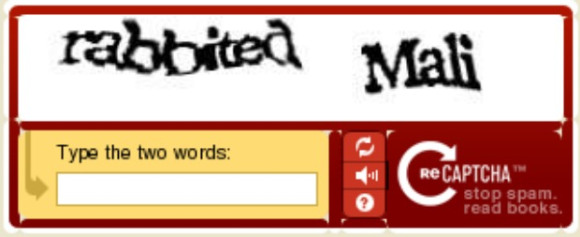
However, some of us do create applications that need to know this, because we want to provide services for actual humans, but do not want to provide another place for spambots to send out their crap. Since YOU aren't actually doing anything with the posted form information, YOU have no need for security and little to no need to verify that the entity on the other end of that pipe is a human, spyder, or spambot. After all, the only interactive part of HTML are the form elements. HTML is designed for PUBLISHING information, captcha applies to web based applications that HTML is only a SMALL part of.

If you are using HTML only, the whole captcha debate is meaningless for you. AH! Now I understand! You are in the wrong conversation and didn't realize it. If you use HTML as it was designed to be used, there is no additional cost in making it accessible. Email, for example, is only being used 5% of the time as intended, the other 95% being spam (As seen on /.

a Human), because the failure to do so means that you may lose the entire technology, or at the very least render it substantially less useful and more expensive. Third, Actually delivering the content to the masses isn't negligible in cost either.įourth, as has been pointed out in other comments and in the article, the problem involves the creation of a technology that will allow your audience to access the content/service you are providing, while simultaneously preventing the use of automated systems to exploit your services by appearing to be your audience (i.e. Second, creating an interface to deliver the content is not Negligable in cost. Here is where you fail to understand the problem.įirst, creating content is not negligible in cost. What's the cost of a system that allows a blind person to access text stored electronically on a computer? Pretty-much negligible. It's not like designing a driverless car, or backfitting access ramps and lifts to historic buildings. If you use HTML as it was designed to be used, there is no additional cost in making it accessible.Ĭome on people, this is not rocket science! Here we have a golden opportunity to make, for practically no additional cost, something that can be accessed by everyone. The information is already in a form that computers can manipulate easily. The thing is, the web should be a superb medium for making its content accessible to practically everyone.

The technology to read shapes on a page and convert them to something the blind person can read or listen to is not straighforward. What's the cost of making a printed newspaper accessible to a blind person? Quite high I suspect. Given the current state of technology it may not be quite possible even (though we could pay for human chauffeurs if we were really determined). What is the cost of making a car that a blind person could drive? Prohibitive, I suspect. Do we lament that the blind and h-o-s cannot drive? I think that's a pretty outrageous attitude.


 0 kommentar(er)
0 kommentar(er)
